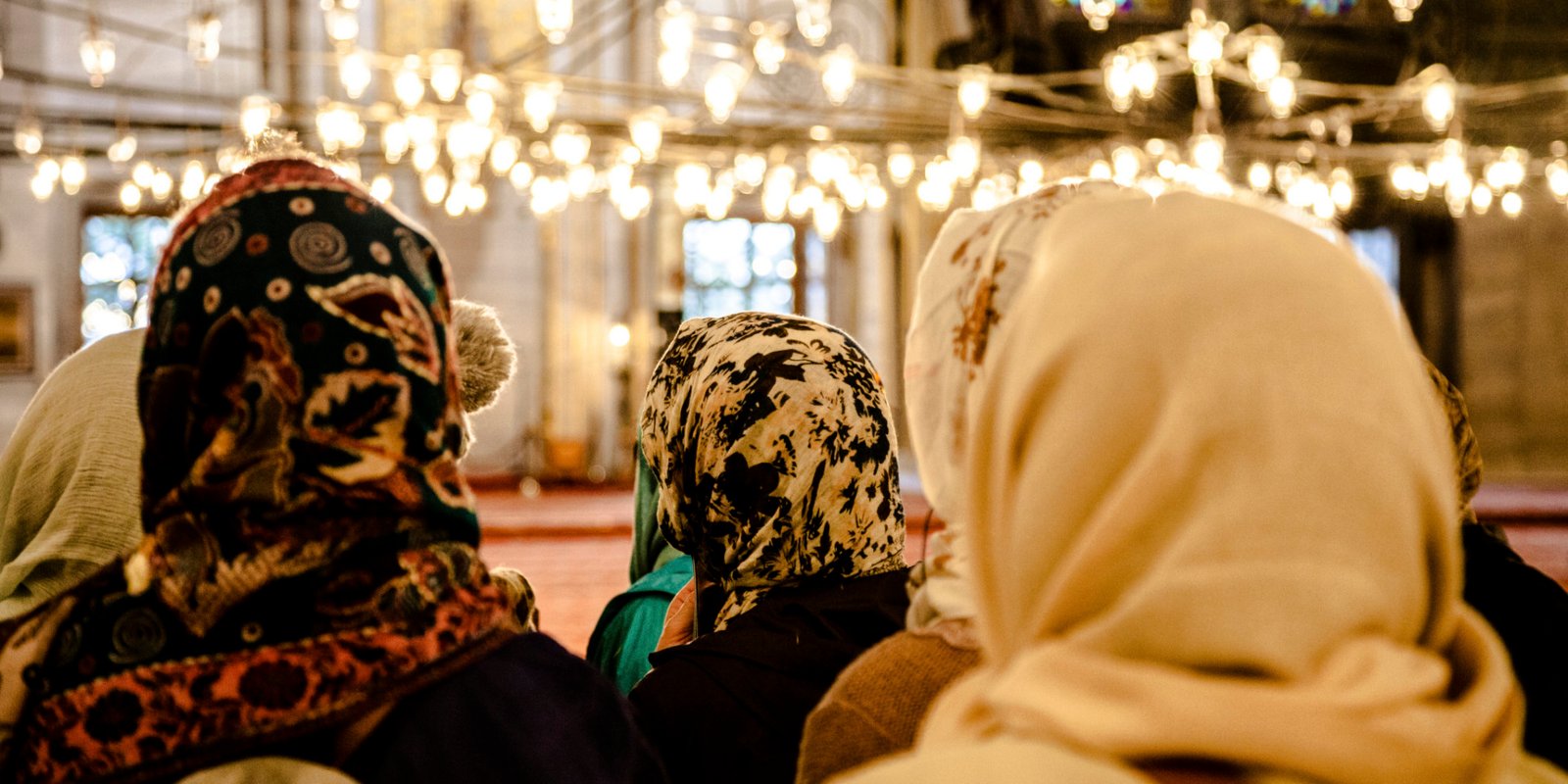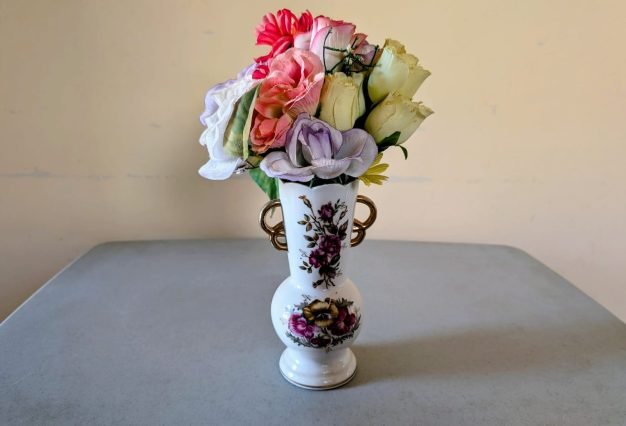By Shaykh Omar Subedar
In an era where grave injustices were being carried out on women, Islam had come and granted them things that they had been deprived of for centuries; statutory rights, honour and dignity. Thereafter Islam had given some instructions in the form of commandments to preserve and maintain these priceless bounties in order that the women may never fall victim to the inexcusable oppression they had been suffering for so many years. However in recent weeks controversy has risen within the Muslim community in regards to the extent the aforementioned rights had been extended to women in Islam, particularly the right of leading congregational prayers. While many have negated the very existence of such rights within our religion, a group of women have attempted to prove otherwise and have taken steps to exercise the rights they feel they have been granted by the religion that stand for justice. In order to determine what the correct stance on this issue is within Islam it is important that we carefully study the Book of Allāh and the traditions of our beloved Prophet (peace and blessings upon him) and thus arrive at a conclusion.
PROOF OF THOSE WHO SUPPORT WOMEN’S IMAMATE FOR MIXED GENDER CONGREGATION AND ITS RESPONSE IN THE LIGHT OF UNAMBIGUOUS ḤADĪTH
The controversial issue to resolve here is whether women are eligible to lead congregational prayers in which the congregation comprises of both men and women. Those who support this idea cite the following ḥadīth as evidence;
Abu Nuʾaym reported, “Walīd bin ʿAbd Allāh bin Jamīʾ Al-Zuhrī related to us, “My grandmother narrated to me from Umm Waraqah bin ʿAbd Allāh bin al-Hārith Al-Anṣārī (a woman) who Allāh’s Messenger (peace and blessings upon him) would visit and call her ‘the martyr’ and who memorized the Qurʿān, when the Messenger of Allāh (peace and blessings upon him) intended to set out for Badr, she suggested to him, “Grant me permission that I may come out with you. I will treat your wounded and tend to your sick, possibly Allāh will grant me martyrdom”. The Prophet (peace and blessings upon him) replied, “Indeed Allāh will grant you martyrdom!”
Allāh’s Messenger ordered her to lead the people of her residence in prayer and she had a ‘Muʾathin’ (caller to prayer). She used to lead the people of her residence in prayer until a male slave and a female slave of her’s, whom she had declared free after her death, had attacked her and subsequently killed her, during the reign of ʿOmar (may Allāh be pleased with him). It was [later] told to him (i.e. ʿOmar – may Allāh be pleased with him), “Umm Waraqah has been killed by her male and female servants!” (ʿOmar – may Allāh be pleased with him) then stood within the public and announced, “Umm Waraqah had been attacked by her male and female servants and subsequently they killed her. They both have run away!” Later the two of them were brought to ʿOmar (may Allāh be pleased with him) who crucified them both. They were the first to be crucified in Madīnah”.
(Reported by Ṭabrāni in Muʾjam Al-Kabīr, ḥadīth no. 326, and Aḥmed in his Musnad (vol 6: 405), and by Bayhaqī in Sunan Al-Kubra (vol 3:130) and by Abū Dāwūd in his Sunan.)
From the following phrase of the afore-mentioned ḥadīth, “Allāh’s Messenger ordered her to lead the people of her residence in prayer and she had a ‘Muʾathin’” the group has declared that women can lead both men and women in prayer. Apparently the word ‘people’ has been interpreted as both men and women by them. However by studying various other aḥadīth we find that ‘people’ here refers to women specifically, as has been mentioned by Shaykh Aḥmed Sahārnpūrī (may Allāh’s mercy be with him) in ‘Bathl Al-Majhūd vol. 1:331. Those aḥadīth are as follows;
THE WORD ‘PEOPLE’ IN THE ḤADĪTH OF UMM WARAQAH REFERS TO ‘WOMENFOLK’
ONE
Jābir bin ʿAbd Allāh said, “I heard Allāh’s Messenger (peace and blessings upon him) saying,” and he then mentioned the ḥadīth within which it was stated, “Lo! No woman can ever lead any man in prayer!”
(Reported by Bayhaqī in ‘Al-Sunan Al-Kubrā’ vol. 3 p.128. Imam Bayhaqī, upon reporting this ḥadīth, expressed, there is weakness in the chain of this ḥadīth, (however) it has also been narrated through another weak chain by ʿAlī bin Abī Ṭālib (may Allāh be pleased with him). And this is the stance of the seven jurists amongst the Tabiʾūn and those after them.)
This ḥadīth clarifies this issue with full clarity. Here the Prophet (peace and blessings upon him) has clearly announced on his pulpit, where he would deliver his sermons, “No woman can ever lead any man in ritual prayer!” This leads us to believe that the ‘people’ who Umm Waraqah (may Allāh be pleased with her) would lead in prayer would be the womenfolk of her area and not the men.
As for the authenticity of this ḥadīth, Imam Bayhaqī has pointed out that it is weak but at the same time he has clarified that it is reliable by stating, “It has also been narrated through another weak chain by ʿAlī bin Abī Ṭālib (may Allāh be pleased with him)”. Through this statement he has indicated towards the ḥadīth principle that when the chains of a weak ḥadīth become multiple then that ḥadīth is categorized as “Ḥasan-li-Ghayrih’ i.e. reliable due to a foreign element.
(Qawāʾid Fī ʿUlūm Al-Ḥadīth p. 34-35).
A major potion of the weak ḥadīth found in Imam Bayhaqi’s Sunnan Al Kubrā are of this nature as has been mentioned by Sheykh Zafar Aḥmad ʿUthmāni in his book ‘Qawāʾid Fī ʿUlūm Al-Ḥadīth. He writes on page 82, “The majority of the scholars of ḥadīth have used weak ḥadīth as evidence when its chains of narrators are many and they have joined it in ruling and status with ‘Ṣaḥīḥ’ (i.e. authentic) at times and at other times with ‘Ḥasan’ (i.e. reliable). This form of weak ḥadīth is found excessively in the book ”As-Sunan Al-Kubrā” by Bayhaqī, which he compiled with the intention of providing evidence for the statements of the Imams and the statements of their companions. When he does not find an authentic or reliable ḥadīth, he provides this (i.e. the ‘reliable’ weak ḥadīth) as evidence for the statement of that Imam or the statement of his followers. He begins to narrate weak ḥadīth from so and so chain and suffices with that. He [then] states, “These chains strengthen one another”.
MALE COMPANIONS ALWAYS PERFORMED THEIR PRAYERS IN THE MOSQUE BEHIND THE PROPHET (PEACE AND BLESSINGS UPON HIM)
TWO
By looking at the title of Umm Waraqah (may Allāh be pleased with her) we notice that she was an Anṣārī and the Anṣār were the original residents of Madīnah. Formerly they were known as ‘Banū Qaylah’. Qaylah was the name of the women from whom the clans of Aus and Khazjraj had originated. When the Prophet (peace and blessings upon him) and his Makkan companions relocated themselves in Madīnah, Banū Qaylah greatly supported them financially and emotionally. It was due to this amazing support that the Prophet (peace and blessings upon him) renamed them the ‘Anṣār’ i.e. the ‘Helpers’. By Umm Waraqah bearing this tittle it became evident that she lived within the city of ‘Madīnah’ and not in the outskirts of the enlightened area. Therefore the men-folk of her house would never observe their prayer at home because the Prophet (peace and blessings upon him) never approved of such a conduct rather they would join the congregation in the Prophet’s (peace and blessings upon him) masjid for the obligatory prayer. The Prophet (peace and blessings upon him) has expressed;
“By Him in whose hands my soul is, indeed I intended to order that firewood be collected and then order someone to pronounce Athān for ṣalāh and then order someone to lead the people in prayer and then I would go behind those men (who did not attend the congregation).”
(Bukhārī ḥadīth # 7224)
In another narration Ibn Mas’ūd (may Allāh be pleased with him) explains,
“And indeed I had seen ourselves in a state that no one would remain absent from it (i.e. the congregation in the Prophet’s – peace and blessings upon him – masjid) except for a hypocrite whose hypocrisy was [openly] known. A [sick] man would be brought [to the congregation] with the support of two men until he would be made to stand in the row.”
(Muslim: ḥadīth # 1488)
When this was the extreme vigilance of the male ‘Ṣaḥābah’ in their attendance of the masjid’s congregation, it becomes undisputable that the only people who would be left behind for Umm Waraqah to lead in prayer would be the women folk of her area and no one else.
WOMEN CAN ONLY LEAD WOMEN IN CONGREGATIONAL PRAYER. THE FEMALE IMAM WILL STAND IN THE MIDDLE OF THE FIRST ROW.
THREE
Through studying the observance of the other female ‘Ṣaḥābah’ who led a congregational prayer, we find that their congregation comprised of only women while no man would be in sight;
a) ʿAṭā reported that “Ᾱy’isha (may Allāh be pleased with her) used to call the athān and the iqāmah; and would lead the women in prayer and [while doing so] she would stand in the middle of them”.
(Mustadrak: ḥadīth no. 731 & Sunan Al Bayhaqī: ḥadīth no 5356)
b) ʿAmmār Al-Duhani related from a woman from his tribe who was called Hajirah who reported that Umm Salamah (may Allāh be pleased with her) led them (women) in prayer and stood in the middle (of the row). (Sunan Al-Bayhaqī: ḥadīth 5357)
From the ḥadīth it becomes evident that women can only lead women in a congregational prayer. Had it been permissible for them to lead a mixed congregation then Ᾱy’isha and Umm Salmah (may Allāh be pleased with them) would have surely led one for they were the ‘Mothers of all believers’ and would have been entitled for such an imamate more than anyone else. Likewise which man would not want to avail from the opportunity of observing ṣalāh behind their ‘Mothers’? However when in Islam there exists no such concept therefore it never took place. Therefore this would lead us to believe that Umm Waraqah only led the womenfolk of her area in prayer and not the men.
ARRANGING THE ROWS OF THE CONGREGATION. MEN STANDING AWAY FROM WOMEN IN SEPARATE ROWS.
FOUR
If it was permissible for a woman to lead a mixed congregation, a question would arise as to where would the female ‘Imam’ stand during the prayer? We have just seen in the previous aḥadīth that when Ᾱy’isha and Umme Salamah (may Allāh be pleased with them) would lead an all women’s congregation they would stand in the middle of the first row and not in front of the congregation as a male Imam always does. If one were to answer that she would stand in front just like the male Imams then the answer would be contradictive to the system the Prophet (peace and blessings upon him) had implemented in arranging the rows of the congregation, in which he would make the men stand in the front and the women at the back. In addition to that, he would encourage the women to situate themselves as far back of the congregation as possible while he would encourage the men to stand as far front as possible in order to avoid any gender mixing. The following narrations confirm this;
a) Abū Hurayrah (may Allāh be pleased with him) related, “Allāh’s Messenger – peace and blessings upon him – explained, “The best rows of the men are the first ones while the worst ones are the last ones. And the best rows of the women are the last ones while the first ones are the worst ones.”
(Muslim: Ḥadīth no. 985, Tirmidhi: ḥadīth no. 224, Nasa’ī ḥadīth no 821, Abū Dāwūd, ḥadīth no. 678, Ibn Mājah: ḥadīth no. 1000)
b) Jābir (may Allāh be pleased with him) narrated, “The Messenger of Allāh (peace and blessings upon him) said, “The best rows of the men are the front ones while the worst ones are the back ones. And the worst rows of the women are the front ones while the best ones are the back ones”. He then said, “O group of women, when the men prostrate, lower your gazes. Do not glance at the private areas of the men due to the tightness of (their) lower garments”
(Aḥmad: 3:293, Ibn Mājah)
c) Sahl ibn Sʾad related, “Indeed I have seen the men behind the Prophet (peace and blessings upon him) tying their lower garments on their necks like the children due to the tightness of the lower garments. One person said, “O group of women do not raise your heads [from prostration] until the men raise [theirs in order that you may refrain from glancing at their rears while they are in prostration].”
(Muslim, ḥadīth no.987)
These narrations clearly point out that the Prophet (peace and blessings upon him) extremely disapproved of women standing near the men’s rows, let alone standing with them (as some people are practicing nowadays) or stand in front of them to lead a ritual prayer. Therefore one could safely conclude that the people Umm Waraqah (may Allāh be pleased with her) used to lead in prayer were the womenfolk of her area and not the men.
The afore-mentioned aḥadīth also clarify the Islamic ruling on women standing in the same rows as men within the congregation, which is; it is absolutely and undisputedly impermissible. If one was to merely write off these aḥadīth by stating, “such a ruling is not found in the Qurʿān”, then this is sheer ignorance on that person’s behalf. In relation to not finding a particular ruling in the Holy Qurʿān we have been instructed to observe the following;
“And whatever the messenger gives you so take it and whatever he has stopped you from so refrain. And fear Allāh.” (Holy Qurʿān 59:7)
THE PURPOSE OF THE ATHᾹN
If one was to argue that if Umm Waraqah never led the men-folk of her area in prayer then why did the Prophet (peace and blessings upon him) appoint a mu’athin for her.? The answer is that it is not conditional for the calling of the athān that through it both men and women must be summoned rather the athān can be called to simply summon the womenfolk of an area to prayer at a designated place as we have seen in the ḥadīth of Ᾱy’isha (may Allāh be pleased with her) who used to personally call the athān and perform the iqāmah and then lead the all-women congregation in prayer. As for Umm Waraqah’s mu’athin, there is no narration which even indicates that he would perform the iqāmah and join the congregation led by Umm Waraqah. Rather, in the light of all the mentioned narrations one would be forced to believe that he would have observed his prayer elsewhere.
AN ALL WOMEN CONGREGATIONAL PRAYER WAS NEVER PERFORMED IN THE PROPHET’S MOSQUE
Another important point which needs to be mentioned is that an all-women congregational prayer was never conducted in the Prophet’s (peace and blessings upon him) masjid, rather these prayers were performed in the seclusion of the homes of these great women who led the prayers. To use the ḥadīth of Umm Waraqah (may Allāh be pleased with her) as evidence for the validity of the following points is a clear perversion of its interpretation;
- A woman can lead a mixed congregation
- A woman can lead the aforementioned congregation in a masjid
- A woman can address a mixed congregation in a sermon delivered in a masjid
WOMEN IN THE MASJID
The first point has been clarified with full clarification. As for the second and third point there is no evidence within the ḥadīth of Umm Waraqah (may Allāh be pleased with her) to support it whatsoever, nor did such an occurrence ever take place in the lifetime of the Prophet (peace and blessings upon him) or in the eras that followed him. Rather such a practice was against the moral ethics that were laid out by the Messenger of Allāh (peace and blessings upon him). The Prophet (peace and blessings upon him) always encouraged women to observe their religious duties at home. However if they wished to come to the masjid and took permission from their men-folk the Prophet (peace and blessings upon him) would not stop them from coming but at the same time he never attached any reward to their visit to the masjid. Once they came to the masjid the Prophet (peace and blessings upon him) only allowed them to participate in the congregational prayers and thereafter they were all required to leave. There was no such thing as women activities or programs in the Prophet’s (peace and blessings upon him) masjid nor was there any form of a masjid committee in which the women would be given managerial positions. If the women ever did begin any activities the Prophet (peace and blessings upon him) would express his displeasure and leave the masjid. The following aḥadīth confirm the aforementioned points;
- Umm Humayd, the wife of Abū Humayd As-Sa’adī (may Allāh be pleased with her) narrates that she came to the Prophet (peace and blessings upon him) and said, “O Messenger of Allāh, indeed I love to pray with you.” He replied, “I know that you love to pray with me, but your prayer in your bedroom is better than your prayer in your living room and your prayer in your living room is better than your prayer in your courtyard and your prayer in your courtyard is better than your prayer in your neighborhood masjid and your prayer in your masjid is better than your prayer in my masjid”. The narrators says, “So she ordered, and a masjid was constructed for her in the farthest and darkest corner of her house and she continued to pray there until she died.”(Ṣaḥīḥ Ibn Ḥibbān ḥadīth no. 2214 and Ṣaḥīḥ Ibn Khuzaymah ḥadīth no.1689).
- Ibn ʿUmar (may Allāh be pleased with her) narrated from the Prophet (peace and blessings upon him), “When your wives seek permission to go to the masjid then do not stop them.”(Bukhārī: 5238)
- Abū Hurayrah (may Allāh be pleased with him) related, “Allāh’s Messenger (peace and blessings upon him) said, “The prayer of a man in congregation is multiplied (in reward) over his prayer in his house or marketplace by twenty five times. And this is because when he performs ablution and does it well and then proceeds to the masjid, he does not take a step except that through it a grade is elevated for him and a sin is dropped from his (account) …..”(Bukhārī: 647) – Notice that the increase in the reward is restricted to men and it is not for the women.
- Umm Salama (may Allāh be pleased with her) narrated, “Whenever Allāh’s Messenger (peace and blessings upon him) would perform salām (to completer the prayer) the women would get up (to leave the masjid) when he would complete his salām while he (peace and blessings upon him) would remain in his place for a short while before getting up.” (Al-Zuhrī, the sub narrator) said, “We believe, and Allāh knows best, that this conduct was so that the women may leave before any man could catch up with them”. (Bukhāri ḥadīth no. 870). Umm Salama (may Allāh be pleased with her) narrated, “When the Messenger of Allāh (peace and blessings upon him) would perform salām he would wait a short while. And they used to think that the reason behind this was so that the women could get through [the doors of the masjid on their way out] before the men.” (Abu Dāwud ḥadīth no. 1040)
- Ᾱy’isha (may Allāh be pleased with her) narrated that Allāh’s Messenger (peace and blessings upon him) mentioned that he would perform I’tikāf in the final 10 days of Ramaḍān. So she sought permission from him (to perform I’tikāf in the masjid) and he gave her permission. ( Later ) Ḥafṣa (may Allāh be pleased with her) asked Ᾱy’isha (may Allāh be pleased with her) to get permission for her so she did so. When Zaynab bint Jahsh (may Allāh be pleased with her) saw this she ordered for a tent and it was pitched for her.” Ᾱy’isha (may Allāh be pleased with her) continued, “Whenever the Messenger of Allāh (peace and blessings upon him) would complete his prayer he would go to his tent. So he saw the tents and asked, “What is this?” They (i.e. his companions) explained, “The tents of Ᾱy’isha, Ḥafṣa and Zaynab.” So Allāh’s Messenger – peace and blessings upon – him expressed, “Have they intended righteousness through this? I am not going to perform I’tikāf!” And he returned home. (Bukhārī ḥadīth no 2045)
- In a narration the Prophet asked, “What is this?” So he was informed about them. He then inquired, “What motivated them upon this? Is it righteousness? Remove them for I do not want to see them!” So they were removed.”(Bukhārī ḥadīth no. 2041)
CONCLUSION
This was not a violation of the women’s rights rather it was the preservation of their newly restored rights i.e. the rights to withhold honour, respect and dignity. Likewise it was a way to protect them from falling victim once again to the many incidents and unacceptable injustices that they suffered for so long before the advent of Islam and restored justice within the land.
The last ḥadīth clearly indicates towards the Prophet’s (peace and blessings upon him) position on an all women congregation being observed in the masjid and women delivering sermons on the pulpit. When the Prophet (peace and blessings upon him) did not approve of his wives (the mother of all believers) observing I’tikāf in his masjid, while being in their tents and out of the sight of others, then how can one possibly assume that the Prophet (peace and blessings upon him) would approve of women openly conducting a congregational prayer or delivering a sermon from the pulpit in his masjid?
May Almighty Allāh guide us all to the correct and unadulterated dīn of Islam. Ᾱmīn.




